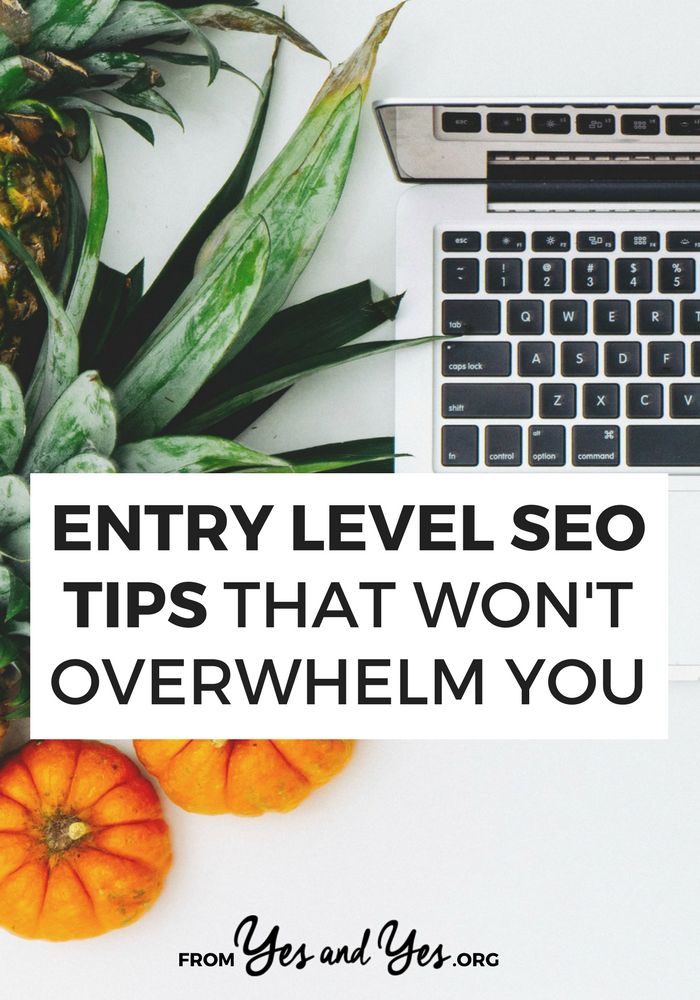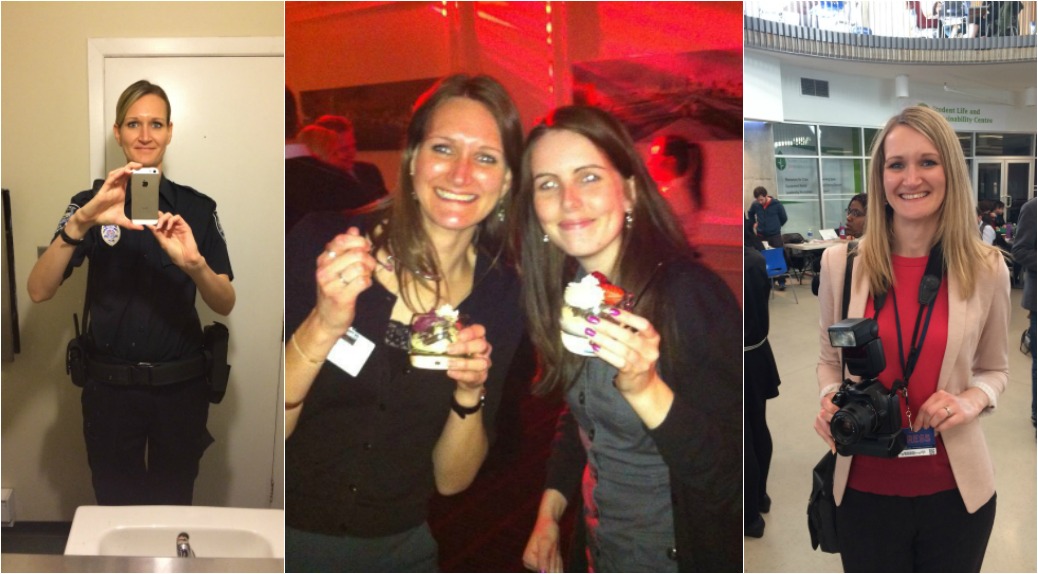
Raise your hand if you file SEO under the heading of “Know I should be doing it, am completely overwhelmed and unsure where to start.”
Dude, YES.
Up until last year, I never, ever optimized my posts because I thought since I didn’t like it, I could ignore it. But then I hired Kim Herrington (the author of this super helpful guest post) and she helped me grow my traffic, income, and subscribers by thousands. Read on for her super doable entry level SEO tips or sign up for her free course to dip your toes into the waters of SEO!
You’ve probably heard about SEO if you’ve been writing on the internet for just about any period of time. But like most people, you likely don’t know where to start when it comes to SEO. Something about putting keywords in alt text, right?
SEO is a lot more than just putting keywords in the right places— it’s really an entire system of thinking about your website and content. Once you open up your content creation and digital marketing thought processes to SEO, you can see huge gains in your search engine traffic!
What you don’t realize is you’re already incorporating SEO strategies into what you’re doing online already and just need to take the next step to fully capitalize on search engine traffic.
Put Important Bits First for Good SEO
Obviously, as an SEO expert, I always think we should place a priority on SEO. But what I mean here is understanding how priority comes into play when you’re creating your content.
Most people don’t read articles word for word and skim articles, reading the title, first line, headings, and trail their gaze down the left side of the page. Search engine engineers know this and have placed a priority on what comes first in articles.
If you’re targeting a keyword, make it first in your title, towards the beginning of your first sentence, and at the start of headings.
This places priority on this keyword or phrase and tells both people and search engines those words are important for your article. Since you’re likely already using headings to organize your content, this small extra step is a great SEO win.
Another thing to remember is that links right at the beginning of your content, like for photos or even guest posts, give priority to those links—which might not be what you’re intending.
Don’t Reserve Alt Tags for Pinterest
Pinterest can be a huge source of traffic for certain types of blogs (hello food and drink writers!) but that doesn’t mean Pinterest should have all the alt tag fun.
Alt tags are behind the code of images to describe images to blind people. Search engines are essentially “blind” so they use this text to interpret images. Putting keywords in alt text is a great idea for good SEO.
However, Pinterest also automatically pulls alt tags for Pinterest descriptions so lots of bloggers use the alt tag solely for that purpose.
Don’t do it!
Instead, add a tiny bit of extra code to your website’s image and get a ton more value for your Pinterest account beyond just a great Pinterest description.
Then your alt tag is for SEO and Pinterest gets its own deal.
Get More SEO Keyword Ideas
One of the hardest parts of doing SEO work isn’t the technical work in code and website logistics. It’s coming up with creative ideas for content targeting specific topical areas and keywords. It all starts with good keyword ideas.
Google’s Keyword Planner tool is one of the first places every SEO professional goes to find new keywords but can be a bit daunting at first. Instead of learning a new tool, let’s use tools we already use anyway!
- Search a keyword you’re working on in Pinterest. See all boxes with other terms below? There’s more ideas to add to your list! Google Image Search also started recommending other terms recently too.
- Search for your term on Instagram. Look at the other hashtags Instagrammers use in combination with your term for more keyword ideas.
- Search for keyword ideas on Twitter and see what other hashtags or words tweets use.
All of these ways for identifying more keywords will also show you how popular different ways of articulating your ideas are, which can help you decide which keywords to focus on in your content. On top of that, doing these searches can give you new ideas for content and help you better understand your audience.
All in all, SEO can be a huge source of traffic for your website if you take the time to think about it, even just a tiny bit. Much of basic SEO work is just taking that extra step beyond what you’re already doing anyway. You can definitely do this!
How do you guys feel about SEO? Do you have any questions for Kim?







Awesome tips! I’m going to start implementing these asap! Although I do disagree regrading Pinterest because I write about blogging & social media and still get most of my traffic from repins/shares on Pinterest. It has to do with having optimized ( long & branded) images within one’s blog post over if it’s a lifestyle of biz post.
Great tips! I have been working on paying more attention to SEO! I’m going to check out the course!
Lots of great information. Thanks for sharing.
Great article, very helpful. Developing an SEO is a tough task, but it can be done easily with the help of tools like, SEO-Report, Webpage.ly etc. you can easily measure and analyze your reach with these tools, I found them helpful at http://betapage.co/
Thank you.
This is super good and helpful but I am still overwhelmed. Can I change titles once the post is published and still work? Or should I just go from hence forward?
I’m 99% sure you can change the titles – just don’t change the url!
These tips seem super helpful! I don’t think I’ve heard of Google Keyword Planner before. I need to research more about it! I have been using Yoast and I still can’t seem to get pageviews from SEO optimization. It’s so frustrating and I am not seeing almost any traffic come to my blog. I am probably going to invest in some helpful online courses in the summer to help with growth strategy to better my blog! But right now as a full-time teacher I don’t have the time I desire to dedicate to online courses.
Katie | http://www.sunshinestyleblog.com
Once you find your SEO terms you want to use what is the best way to implement them? Other than tags (WordPress) and placing the terms in your article is there something that you need to do? an app to install?
These are great suggestions! I clicked over from another post you have about getting serious about your blog. I’ve had mine for a couple of years and have been optimizing the last few weeks. I love the alt tag suggestion, mostly because I know it will be an easy move!